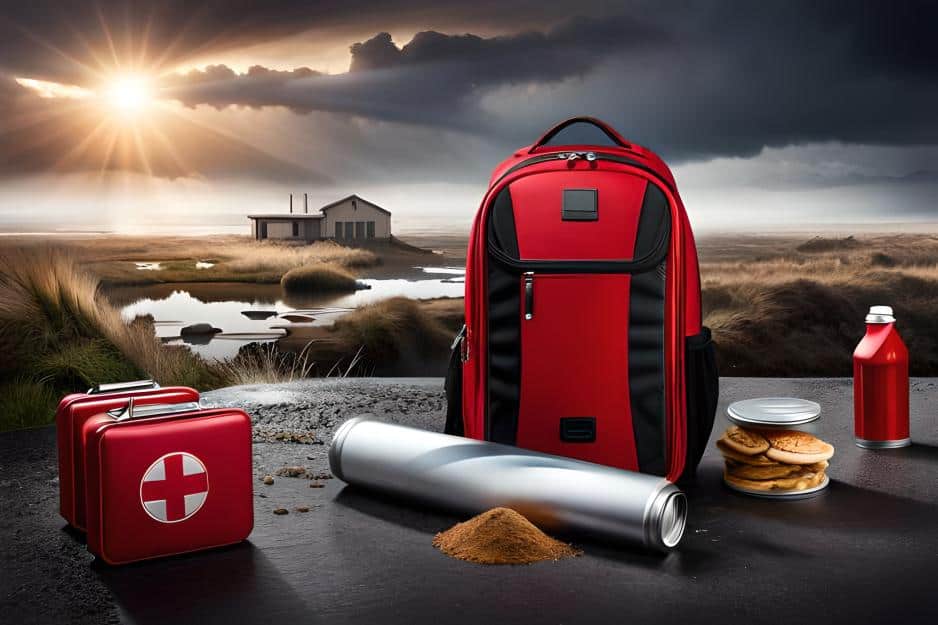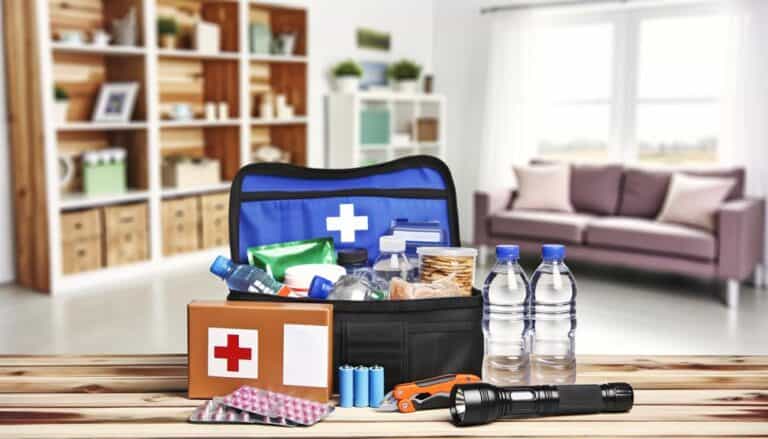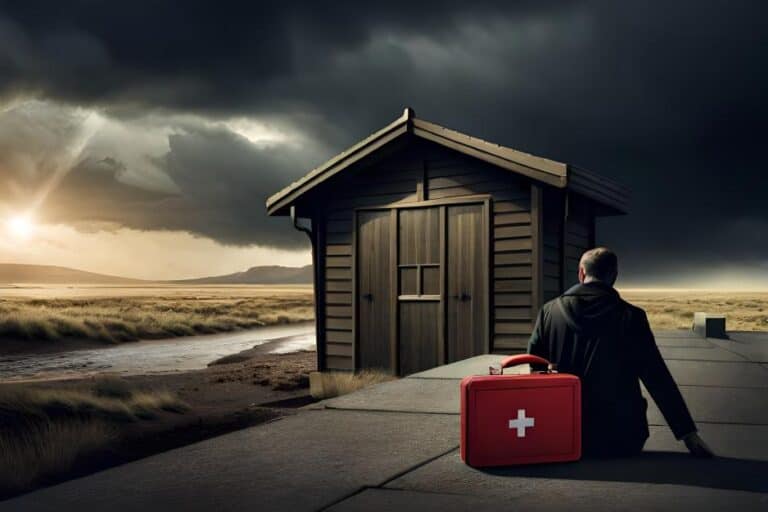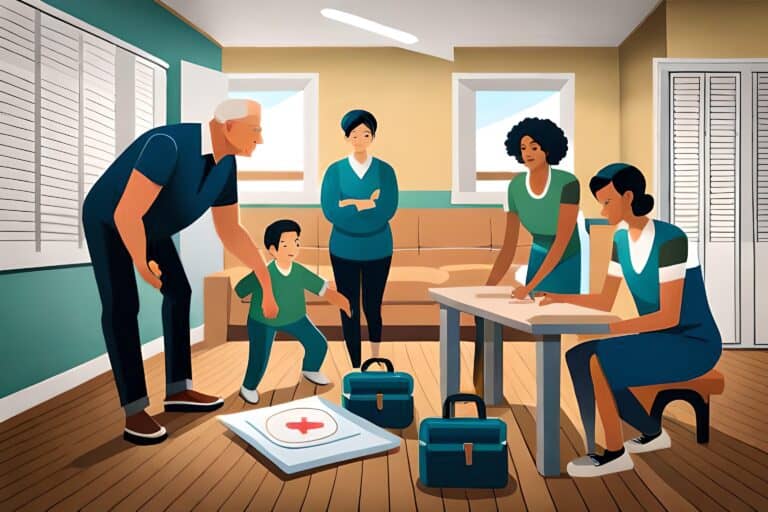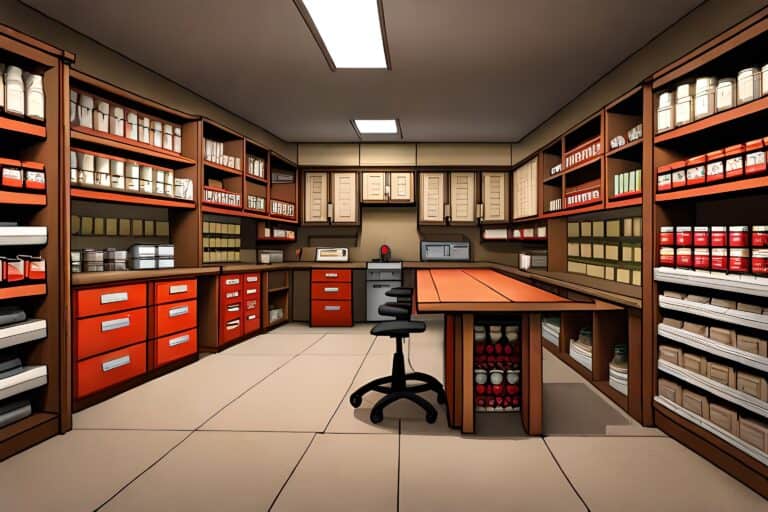What Types Of Disasters Should I Prepare For?
You might be thinking, ‘What types of disasters should I prepare for?’ Well, my fellow freedom-seekers, this is where we’ll explore the common natural and man-made calamities that could potentially disrupt your peace of mind. From earthquakes to pandemics, each one poses its own unique set of challenges – but fear not!
With practical advice and actionable tips, you’ll be well on your way towards achieving self-sufficiency in even the most trying circumstances. So buckle up and let’s dive headfirst into the world of disaster preparedness together!
- Earthquakes
- Floods
- Wildfires
- Pandemics
- Cyberattacks
- Frequently Asked Questions
- How Do I Prepare For Multiple Disasters Occurring Simultaneously Or In Quick Succession?
- What Specific Precautions Should I Take For Elderly Family Members Or Those With Special Needs During A Disaster?
- How Do I Ensure The Safety Of My Pets And Livestock During Different Types Of Disasters?
- Are There Any Lesser-Known Disasters (E.G. Volcanic Eruptions, Landslides, Or Solar Flares) That I Should Also Be Prepared For?
- How Do I Stay Informed About Potential Disasters In My Area And Access Resources To Help Me Prepare For Them?
- Conclusion
Earthquakes
One of the most critical disasters to prepare for is earthquakes. While earthquake prevention may not be possible, as tectonic forces deep within our planet’s crust are beyond human control, we should focus on mitigating their impact through proper planning and seismic safety measures.
By understanding the potential hazards of these powerful tremors, you’ll be better equipped to protect yourself, your loved ones, and even contribute to building a more resilient community.
When preparing for an earthquake, knowledge truly is power – especially in assessing risks, identifying safe spaces within your home or workplace, and knowing how to respond effectively during and after the event.
Start by familiarizing yourself with local seismic activity patterns (if any) and learning about appropriate emergency response procedures from credible sources like government agencies or reputable organizations.
Investing time now in self-education will empower you with confidence when faced with this unpredictable force of nature; ultimately helping you embrace that subconscious desire for liberation from fear itself – unlocking newfound resilience in the face of adversity.
Floods
One significant disaster that cannot be overlooked is flooding. Floods can result from various situations such as heavy rainfall, overflowing rivers, and even storm surges during hurricanes or typhoons.
When we prepare for the possibility of floods, we take essential steps towards ensuring our safety and well-being—liberating ourselves from fear and anxiety associated with these natural disasters.
Moreover, floods can potentially cause secondary disasters like chemical spills from damaged industrial facilities or storage tanks. By being prepared, you protect yourself and help preserve the environment around you by minimizing damage caused by hazardous materials released in floodwaters.
So take charge of your future today; don’t let disaster catch you off guard – make a plan now!
Wildfires
Imagine the heat, smoke, and embers rapidly consuming everything in their path as a wildfire rages through your community. The thought is terrifying, but preparing for such disasters is crucial.
Wildfires are among the most destructive natural hazards and can strike with little warning. As climate change exacerbates drought conditions and warm temperatures, the risk of wildfires increases dramatically.
To safeguard yourself from these infernos, you must understand how fuel sources impact fire behavior and take appropriate precautions like creating defensible spaces around your property.
Additionally, support local efforts that use prescribed burns – carefully planned fires under controlled conditions – to reduce excess vegetation that could otherwise contribute to more intense and uncontrollable wildfires.
By taking an active role in preparing for this fiery foe now, you’re giving yourself the freedom from fear when disaster strikes – knowing that you’ve done all you can to protect what matters most.
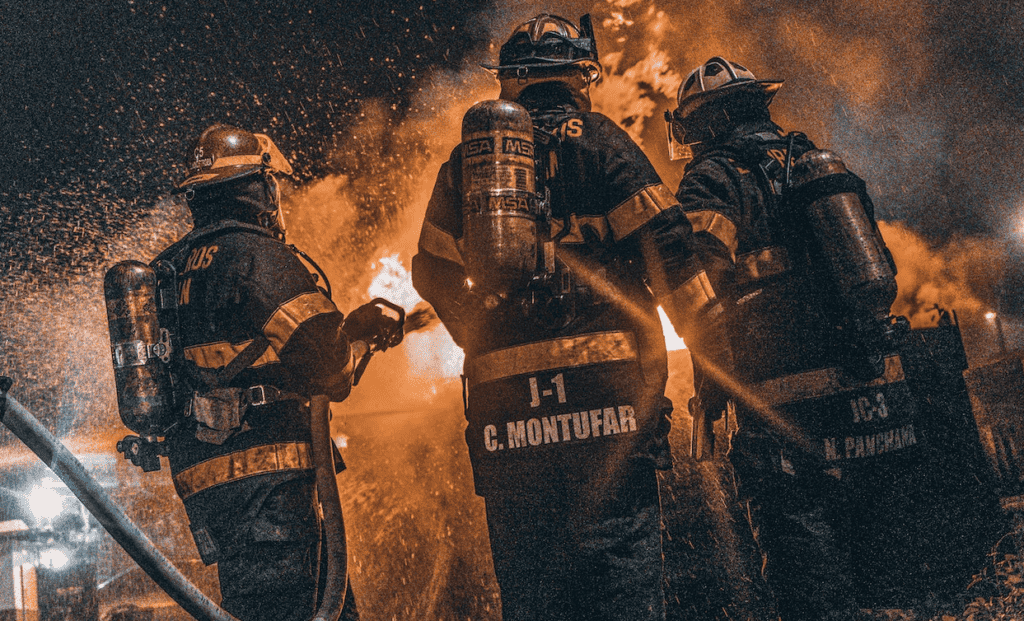
Pandemics
As the smoke clears from a wildfire, another type of disaster may be lurking just around the corner – pandemics. These global outbreaks of infectious diseases can spread rapidly and have significant consequences on our health, economy, and daily lives.
Knowing how to prepare for a pandemic is essential to protect yourself and your community.
To effectively face pandemics, understanding prevention strategies is crucial. This includes staying informed about current disease trends and potential threats, practicing good hygiene habits such as regular hand washing and respiratory etiquette like covering your mouth when coughing or sneezing.
Emergency planning is also vital; having an established plan with necessary supplies (e.g., non-perishable food items, water, and medications) will ensure you are better equipped to cope during periods of self-isolation or quarantine.
Remember that gaining knowledge and taking action now not only safeguards against future pandemics but contributes to a more resilient society where everyone has the opportunity for liberation from fear and uncertainty surrounding these disasters.
Cyberattacks
In today’s digital age, cyberattacks can hit us like a tidal wave, sweeping away our sense of security and leaving us vulnerable to devastating losses. As we rely more heavily on technology for communication, work, and storing valuable information, it becomes increasingly important to prioritize cybersecurity in our disaster preparedness plans.
Fortunately, there are several steps you can take for effective cybercrime prevention.
- Regular data backups: This is your safety net when all else fails. Store copies of essential files and documents in multiple locations (such as an external hard drive or cloud storage) to ensure easy retrieval during a cybersecurity breach.
- Keep software up-to-date: Cybercriminals often exploit known vulnerabilities in outdated software versions. Regularly updating your devices with the latest patches will help protect against potential threats.
- Practice strong password hygiene: Use complex passwords that include combinations of uppercase letters, lowercase letters, numbers, and symbols – and avoid reusing them across different platforms.
As if battling Mother Nature wasn’t enough, brace yourself to face invisible enemies lurking in cyberspace too! By incorporating these measures into your overall disaster preparedness strategy, you’ll be well-equipped to handle challenges – both natural and virtual.
So go ahead; liberate yourselves from fear by taking control over what once seemed uncontrollable – arm yourselves with knowledge and foresight to withstand even the most formidable attacks on our modern world.
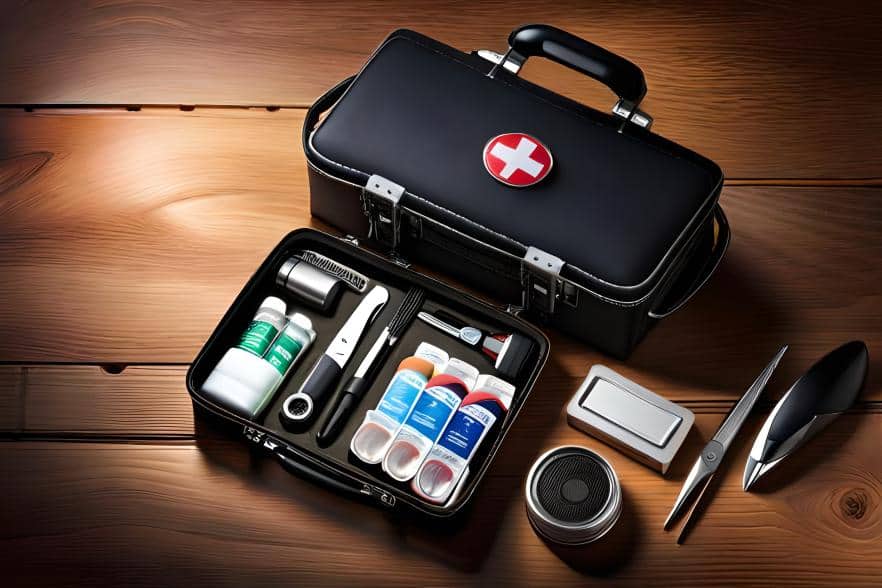
Frequently Asked Questions
How Do I Prepare For Multiple Disasters Occurring Simultaneously Or In Quick Succession?
When faced with the daunting prospect of multiple disasters occurring simultaneously or in quick succession, it’s essential to have a comprehensive plan that covers supply stockpiling and emergency communication.
As a disaster preparedness expert, I can’t stress enough the importance of having sufficient supplies to sustain yourself and your loved ones for an extended period. This includes non-perishable food items, water, first aid kits, medications, and other essentials like flashlights and batteries.
Additionally, establishing reliable methods of communication is crucial for staying informed about evolving situations and coordinating with family members during emergencies. Consider investing in tools such as battery-powered radios, satellite phones, or even walkie-talkies to ensure you stay connected no matter the challenges.
Preparing for multiple disasters requires foresight, adaptability, and a commitment to taking control of your safety – a truly liberating endeavor that empowers you to face whatever life throws at you with confidence and resilience.
What Specific Precautions Should I Take For Elderly Family Members Or Those With Special Needs During A Disaster?
When creating your emergency plan, it’s crucial to consider the unique needs of elderly family members or those with special requirements.
Discuss their specific necessities, such as mobility aids, medications, and medical equipment.
Ensure they have access to essential supplies like extra batteries for hearing aids or a backup power supply for electric wheelchairs.
In addition to physical preparations, financial preparedness is vital; gather important documents like insurance policies and bank statements in a waterproof container that can be easily accessed during an evacuation.
By integrating these personalized precautions into your overall disaster preparedness strategy, you’re ensuring the safety of vulnerable loved ones and empowering them to face unexpected challenges with confidence and resilience.
How Do I Ensure The Safety Of My Pets And Livestock During Different Types Of Disasters?
To ensure the safety of your pets and livestock during various disasters, it’s crucial to have a well-thought-out plan in place.
Start by creating an emergency kit for each animal that includes food, water, medications, and any necessary documentation.
Please familiarize yourself with pet-friendly shelters or safe locations to temporarily house them.
For livestock safety, identify higher ground areas and develop evacuation routes to move larger animals away from flood zones or other high-risk disaster areas.
Regularly practice these plans to prepare you and your animals when disaster strikes.
Remember, securing their well-being protects them and brings peace of mind as we navigate uncertain times together.
Are There Any Lesser-Known Disasters (E.G. Volcanic Eruptions, Landslides, Or Solar Flares) That I Should Also Be Prepared For?
There are lesser-known disasters like volcanic eruptions, landslides, and solar flares that you should be prepared for.
Volcanic hazards can include ashfall, lava flow, and pyroclastic flows, which can cause significant damage to infrastructure and the environment. Preparing for such events involves staying informed about geological activity in your area and planning to evacuate if necessary.
Landslides often occur due to heavy rainfall or earthquakes; being aware of weather forecasting is crucial to anticipating this kind of disaster.
Solar flares might seem far-fetched, but they can potentially disrupt communication systems and power grids; keeping backup power sources handy is always smart.
Taking precautions for these lesser-known disasters’ll ensure greater peace of mind and liberation from worry during uncertain times.
How Do I Stay Informed About Potential Disasters In My Area And Access Resources To Help Me Prepare For Them?
To stay informed about potential disasters in your area and access resources to help you prepare for them, developing a comprehensive communication plan that includes signing up for local alerts, monitoring news outlets, and connecting with community organizations is crucial.
Conducting a risk assessment will give you an idea of the most likely hazards in your region so you can tailor your emergency kits accordingly.
Don’t forget to factor in mental health support and resources as part of your preparedness efforts – dealing with disaster-related stress is just as important as having the right supplies.
Remember, being proactive about staying informed and preparing for emergencies is key to achieving peace of mind and fostering a sense of liberation from uncertainty.
Conclusion
In conclusion, being prepared for a wide range of disasters that could potentially occur in your area is crucial. By having a solid plan and taking appropriate precautions, you can ensure the safety and well-being of yourself, your loved ones, and even your pets or livestock.
Don’t forget about those who may require extra attention during emergencies, such as elderly family members or individuals with special needs. Make sure to include their specific requirements in your disaster preparedness plans.
Additionally, stay informed about potential threats by regularly monitoring news sources and following expert recommendations.
Finally, remember that knowledge is power when it comes to disaster preparedness. Stay curious and proactive in learning about lesser-known hazards like volcanic eruptions, landslides, or solar flares. The more you know about these types of events and how they might affect your region, the better you’ll be to handle them should they arise.

